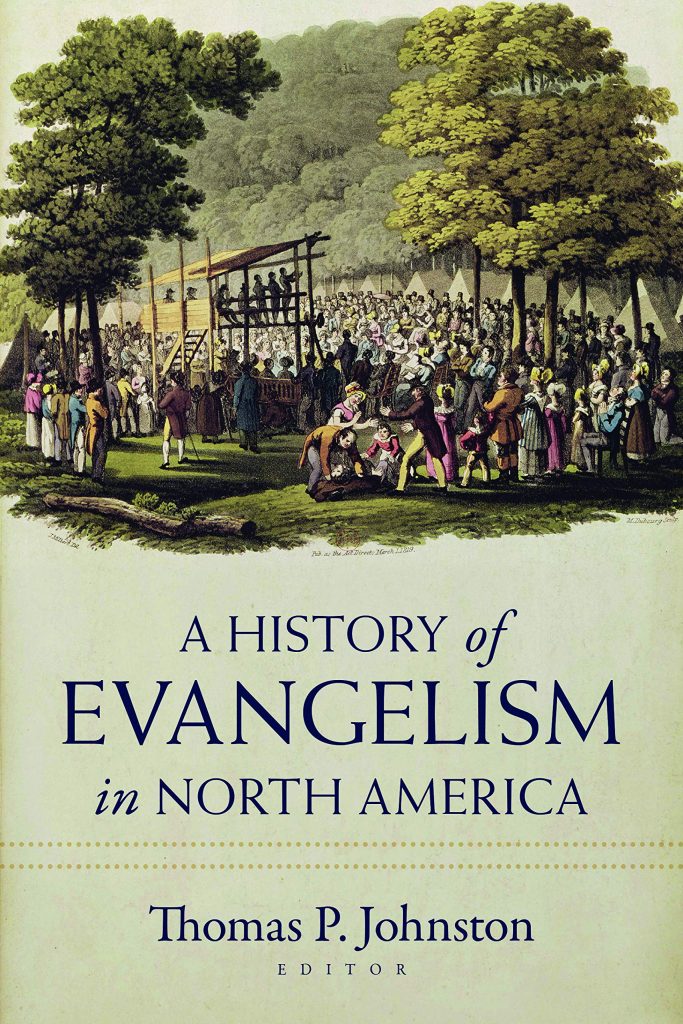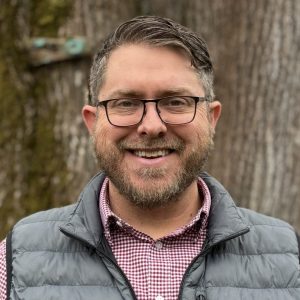
Chapter 12: Henrietta Mears and Sunday School Evangelism
Dr. Kristen Ferguson
Written by a number of experts and experienced ministry leaders, A History of Evangelism in North America (edited by Thomas P. Johnson) provides an account of distinct and influential evangelism figures and methodologies from the early 16th century to today. Dr. Kristen Ferguson contributes to this volume by writing on Henrietta Mears and her evangelistic strategy through a church Sunday school program.
While some had already written off Sunday school as a thing of the past, Mears brought new purpose, rigor, and enthusiasm to the education department of First Presbyterian Church. She paired her education experience with her passion for the Bible as she approached her new ministry assignment. Marked by quality, age-appropriate learning, trained teachers, and a commitment to the Bible, the Sunday school program grew from 1,624 to more than six thousand, becoming one of the largest in the country under her leadership. Her constant focus on evangelistic outreach drove her decisions and leadership throughout her ministry, resulting in dramatic, numerical increase, and spiritual growth.
Mears was committed to quality in her education department at First Presbyterian. A few years earlier, the infamous Scopes trial meant evolution could be taught in public school. As a response, many church education programs, including Mears’s, felt that their responsibility was to ensure students received education to counter this unbiblical worldview. Thus, Mears often promoted that the quality of the education in Sunday school needed to be on par with public school’s quality. She felt that if students were to follow Christ and commit themselves to his service truly, they would need a place to get their questions answered from Scripture. She provided just that through strong biblical teaching, open dialogue, social activities, and constant investment into their lives in a personal way.
Part of offering quality church education was to ensure that the materials and lessons taught were age-appropriate. Mears advocated, “As a child grows from infancy to adulthood, there are three distinct periods of development that are passed – childhood, youth and adult – that have characteristics so definite that they may be easily marked. All are part of the sowing field of our Sunday school.” While still prioritizing the Bible’s authority, Mears was an integrationist as she used the most up-to-date theories of education and childhood developmental psychology in her instructional methodology. She organized and oversaw classes for every age from infancy to adulthood. Mears wanted strong relationships to be formed in the church and encouraged cohorts to move through classes together as they grew into adulthood.
Mears taught that “the most powerful part of a Sunday school lesson was the teacher behind it.” She rejected installing teachers in her classes who would just fill the position; instead, she often recruited volunteers whose profession was teaching or who felt strongly called to teach in Sunday school. Regardless of their background, Mears offered regular training that was eventually attended by more than five hundred teachers from various churches. The Sunday school ministry grew so large that in 1948 she oversaw 309 teachers at First Presbyterian. She wanted her teachers to be confident in sharing the gospel with their students from each lesson and encouraged them to “take every opportunity to do so.”
Though many in Mears’s time questioned the validity of the Bible, she stood firmly on the Bible as inerrant and held that it provided a unified message about God and his plan of salvation. Her commitment to it was steadfast as she consistently guided students to it for their questions and concerns. She desperately wanted her students to understand the Bible’s impact in their own lives and the culture around them. Her book What the Bible Is All About served that purpose by providing deep and detailed information on the contents of each book of the Bible and gospel story found throughout Scripture. Mears knew that if her students were to meet Jesus, it would come from explicit encounter with his Word, both intriguing and relevant for every person.
Taken from A History of Evangelism in North America © Copyright 2021 by Thomas P. Johnston. Published by Kregel Publications, Grand Rapids, MI. Used by permission of the publisher. All rights reserved.
Read More

Comfort Twice Over
When we provide comfort to fellow believers, we are the means by which God has chosen to provide his comfort.

Inheritance & Glory: Our Vocation
For believers, while heaven may seem long away, our eternal inheritance is already available to us in the here and now.
Listen
Brian Borgman
On this episode of The Jonathan Edwards Center Podcast, Dr. Chris Woznicki interviews Dr. Brian Borgman regarding his book, Jonathan Edwards on Genesis. They discuss Edwards as an exegete, as an interpreter of scripture, specifically looking at Genes

The Dents
Tyler sits down with longtime missionaries and retired Gateway faculty, Don and Anne Dent. The Dents served with the IMB for over 30 years and most recently at Gateway Seminary. In this episode, they reflect on their past experiences from working in the mission field

Watch

Jonathan Edwards and the Asbury Revival
Chris Chun and Chris Woznicki discuss the signs of true revival, signs of the work of the Holy Spirit, and why it is important to critically assess the characteristics of revival in a spirit of charity.

Jonathan Edwards and the Baptists | Douglas Sweeney, Nathan Finn and Chris Chun
Dr. Douglas Sweeney and Dr. Nathan Finn joined Dr. Chris Chun for a panel discussion on Jonathan Edwards, recorded live at the SBC Annual Meeting in Anaheim.




